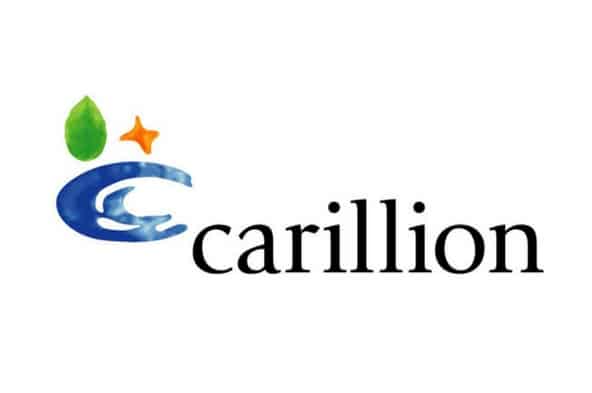If your business is under financial pressure, it’s important that you act as quickly as possible to avoid being subject to legal action by a creditor.
Even the best businesses can run into financial difficulties. If your business loses a key source of revenue, has an unforeseen expense or suffers from any other kind of setback, you may find yourself in a position where paying your creditors is difficult.
Turnaround finance is a type of financing intended for financially distressed businesses that are unable to raise money from traditional banks or finance providers.
If your business is in a difficult financial situation, using turnaround finance may allow you to pay creditors and avoid becoming insolvent, allowing your business to continue trading and work on a financial recovery.
As insolvency specialists, we work with a range of UK-based turnaround financing providers and can help connect your business to funding options. For more information, contact us on 0800 9717185 or via email to schedule a free, private consultation or continue reading below.
What is Turnaround Finance?
Turnaround finance, or turnaround capital, is a form of financing intended for businesses that are in financial distress.
Not all businesses can access traditional financing options such as bank loans. Lack of direct access to financing is a particularly common problem for SMEs, particularly small businesses with stretched working capital.
A turnaround financier, or funder, can provide capital for your business when it needs it most, such as when it’s facing significant financial or legal pressure.
Unlike conventional finance, turnaround finance isn’t intended to fuel your business’s growth and development. Instead, it’s intended as a short-term form of financing that you can use to pay creditors, relieve financial pressure and facilitate a business turnaround.
Is Your Business Eligible for Turnaround Finance?
Providing turnaround finance to a financially distressed business involves a significant amount of risk. As a result of this, many financing providers are selective about the businesses they’re willing to work with. To access turnaround financing, your business generally needs to be:
- Financially viable. Your business must have the potential to recover from its current financial difficulties and become profitable in the future. To access financing, you will typically need to demonstrate this viability to financing providers.
If your business is not viable, an insolvency procedure such as voluntary liquidation might be a more appropriate option for ending creditor pressure. - Suitable for turnaround finance. Certain distressed businesses, such as those with significant debts and few assets, might not be well suited to turnaround financing and may benefit more from options such as Company Voluntary Arrangement (CVA).
No two businesses are identical, meaning the best option for your business is likely different from that of another business. As such, we recommend contacting our team to discuss your business and learn more about the financing and recovery solutions that are available.
Types of Turnaround Finance
Several different types of turnaround financing are available for businesses. Depending on the type of business you operate, its cash flow and its current financial state, one financing option may be a better option for you than others. Common forms of turnaround finance include:
- Turnaround loans. Some businesses may qualify for a secured turnaround loan as a form of turnaround finance. Turnaround loans typically have high interest rates (above base rate) to account for the risk in lending to a financially distressed business.
The payment terms, interest rates and fees for turnaround loans can vary based on the needs and repayment ability of your business. A turnaround loan may be made out for just a few months or for several years, with regular instalment repayments.
A variety of assets are used as collateral for turnaround loans. Your business may need to provide equipment, business vehicles, commercial real estate or equity as collateral to secure this form of turnaround financing. - Merchant cash advance (MCA). If your business generates a significant portion of its revenue via credit and debit card sales, a merchant cash advance may be an option for improving cash flow and paying creditors.
A merchant cash advance lets you borrow money in the short term using future credit or and debit card sales for repayment. In exchange, the cash advance provider will receive a percentage of credit and debit card sales, as well as certain interest and/or fees. - Invoice factoring. Invoice factoring is a financing solution in which your business sells its invoices (accounts receivable) to a factoring provider. The factoring company pays a discounted rate for each invoice, providing your business with immediate cash flow.
Invoice factoring can be a good option if your business has consistent revenue from its clients and/or customers but faces cash flow issues and difficulty managing its current liabilities due to slow payment terms. - Invoice discounting. Invoice discounting is a financing solution in which your business uses its invoices (accounts receivable) as collateral for a credit facility. As your business sends out each new invoice, a percentage of the balance becomes available as credit.
Like factoring, invoice discounting can be a good option if your business finds it difficult to meet its current liabilities but has consistent revenue from clients and/or customers. - Other forms of financing. Numerous other forms of turnaround finance are available, including short-term single-purpose finance, turnaround equity-based investment and a range of other solutions.
Turnaround financing is a very specialised field and finance providers often have highly specific requirements. As such, some forms of turnaround financing may be available or unavailable for your business based on its industry, cash flow, financial state and other factors.
For more information on the options listed above and other forms of turnaround finance, contact us to talk to our team.
Other Insolvency and Recovery Solutions
Turnaround finance can be a helpful tool for ending creditor pressure and moving your business towards a financial recovery. However, it’s not the only option available. Other solutions for your business may include:
- Proposing a Company Voluntary Arrangement (CVA). If your business is under legal pressure from its creditors, a CVA can shield you from legal action while allowing you to negotiate new terms and consolidate your debt into a single monthly repayment.
- Entering into administration. During the administration process, your business will be shielded against legal action from creditors while an insolvency practitioner is appointed to oversee the business.
- Using pre-pack administration. The pre-pack administration process may allow you and/or other company directors to purchase and continue certain parts of a distressed business via a new company.
- Closing and liquidating the business. If your business is under creditor pressure and isn’t financially viable, you may decide to close the business via the Creditors’ Voluntary Liquidation (CVL) process.
Talk to Our Turnaround Financing Experts
It’s important to act quickly if your business is in financial distress, especially if you’ve received a statutory demand letter or winding up petition from a creditor.
As specialists in insolvency and business recovery, we’ve helped hundreds of UK businesses to obtain emergency turnaround financing. Our clients include both small and large companies in a diverse range of industries.
If your business is a suitable option for turnaround financing, we can refer you to private lenders and turnaround financing providers that can help your business access the cash it needs to pay creditors and work towards financial recovery.
If you think that turnaround financing may be an option for your business, contact us on 0161 8719 842 or send us an email to schedule your free private consultation with our team.



